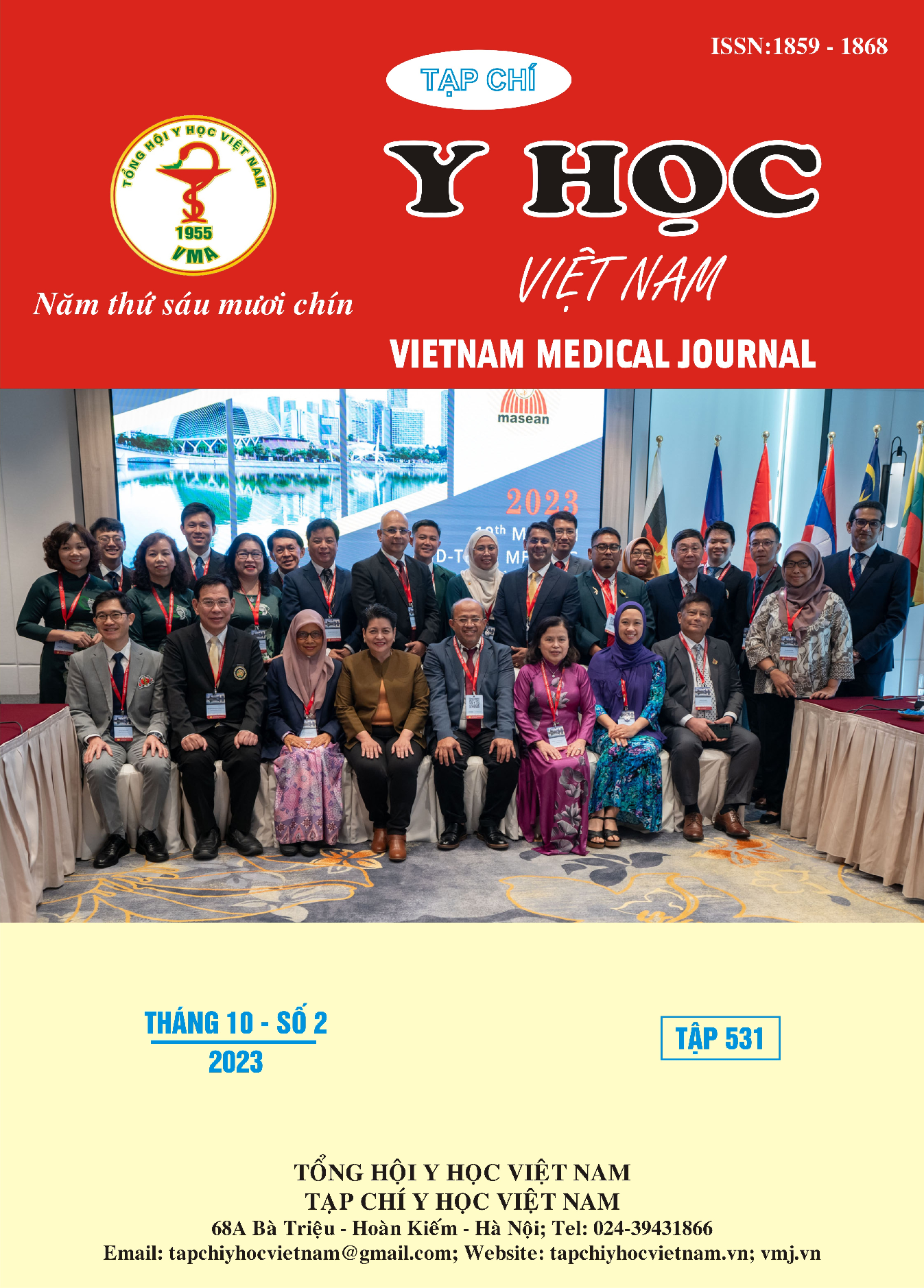CURRENT STATUS OF KNOWLEDGE ON HEART FAILURE IN ELDERLY PATIENTS WITH HEART FAILURE AT 108 MILITARY CENTRAL HOSPITAL IN 2023
Main Article Content
Abstract
Objective: Describe the current status of heart failure knowledge in elderly patients with heart failure at the 108 Military Central Hospital, 2023. Subjects and methods: A cross-sectional study design using Heart Failure Knowledge Scale (HFKS). The study was undertaken in a department of cardiology at 108 Military Central Hospital from February to May 2023. Result: A total of 161 patients were enrolled in this study. The average age was 69.5 ± 11.9 years old, mostly male (68.9%). More than half of the participants had heart failure for 1-5 years (66.4%), identified as NYHA types II and III 80.2%, and the rate of re-hospitalization 1-3 times accounted for 94.5%. Almost knowledge of participants is rated at passed level (83.2%). Only have a few is not pass. The average score is 8.40 ± 3.33 points. Conclusions: Although most subjects have a passed level of knowledge, most are not sure or unaware of the recommendations related to fluid restriction and symptom control. Education for HF patients is a necessary and important job, but also challenging and complex. HF symptoms must be accurately identified and interpreted by the patient in order to take appropriate action.
Article Details
Keywords
knowledge, heart failure, elderly people, patients.
References
2. Kennedy BM, Jaligam V, Conish BK, Johnson WD, Melancon B, Katzmarzyk PT. Exploring Patient, Caregiver, and Healthcare Provider Perceptions of Caring for Patients With Heart Failure: What Are the Implications? Ochsner J. 2017;17(1):93-102.
3. Fang J, Mensah GA, Croft JB, Keenan NL. Heart failure-related hospitalization in the U.S., 1979 to 2004. J Am Coll Cardiol. 2008;52(6):428-434. doi:10.1016/j.jacc.2008.03.061
4. Lippi G, Sanchis-Gomar F. Global epidemiology and future trends of heart failure. AME Medical Journal. 2020;5(0). doi:10.21037/amj.2020.03.03
5. Ghali JK, Kadakia S, Cooper R, Ferlinz J. Precipitating factors leading to decompensation of heart failure. Traits among urban blacks. Arch Intern Med. 1988;148(9):2013-2016.
6. Tsuyuki RT, McKelvie RS, Arnold JM, et al. Acute precipitants of congestive heart failure exacerbations. Arch Intern Med. 2001;161(19):2337-2342. doi:10.1001/archinte.161.19.2337
7. KHẢO SÁT KIẾN THỨC VỀ BỆNH SUY TIM Ở NGƯỜI BỆNH SUY TIM TẠI BỆNH VIỆN E, HÀ NỘI NĂM 2021. https://tapchiyhocvietnam.vn/index.php/vmj/article/view/2290/2098. Accessed June 20, 2023.
8. Zeng W, Chia S, Chan Y, Tan S, Low JH, Meng Kum F. Factors impacting heart failure patients knowledge of heart disease and self-care management. Proceedings of Singapore Healthcare. 2016;26. doi:10.1177/2010105816664537
9. Kato N, Kinugawa K, Nakayama E, et al. Development and psychometric properties of the Japanese heart failure knowledge scale. Int Heart J. 2013;54(4):228-233. doi:10.1536/ihj.54.228


